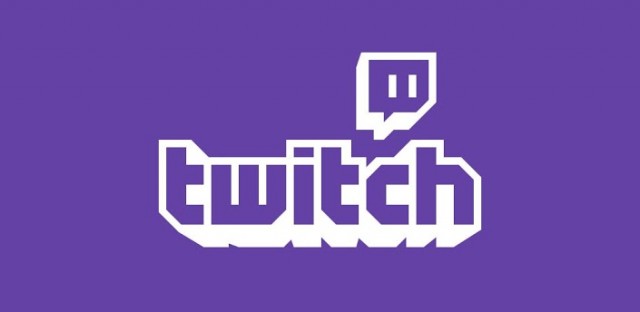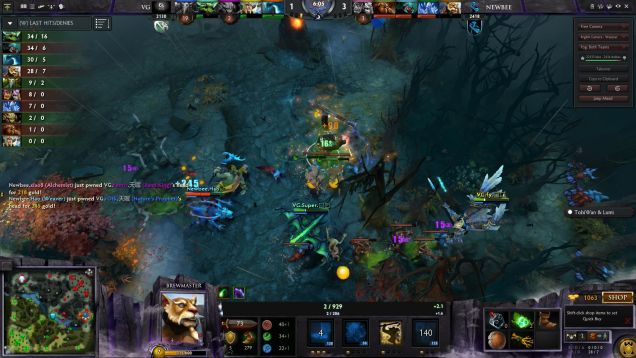
When I talk to people who don't follow gaming closely about the phenomenon that is Twitch, the response I get is usually along the lines of "Why do people spend so much time watching other people play a game they could just as easily play themselves?"
"Why do so many people watch the NFL when they could just as easily play a game of football in their yard?" I reply.
The analogy isn't perfect—you need good weather, a group of friends, a field, and decent physical fitness to play football, after all—but the basic relationship is the same. Twitch has become a phenomenon because watching the best players in the world is often more entertaining than participating as a relative novice.
The numbers bear this idea out. Twitch reported 55 million unique visitors in July, who watched 15 billion minutes of streaming content generated by one million unique streamers. The site is responsible for roughly two percent of peak US Internet traffic, according to a DeepField analysis, just ahead of heavyweights like Hulu, Facebook, and Valve. Last year's League of Legends finals drew 32 million total viewers on Twitch, and 8.5 million concurrent watchers at the same time, rivaling viewership for major sporting events like the NBA finals.Those kinds of numbers help explain why Amazon thought Twitch was worth a $970 million acquisition. But for those who aren't yet familiar with the joys of watching live video game streams, it's hard to know why Twitch got so popular so quickly.
For one thing, there's something to be said for watching these kinds of games live rather than as part of a pre-recorded video. Even something as deeply stupid as Twitch Plays Pokemon can become a phenomenon because it's happening live and you can discuss the game with thousands of others. Watching low-level players can also be entertaining if they're responding to your chatroom questions live during the stream.
Similarly, I could watch near-perfect speed run videos of popular games any time I want. Yet I still love watching speedrunning attempts live, with many like-minded fans, during the regular Games Done Quick charity marathons. Watching live, the inherent uncertainty of what will happen next provides a totally different experience. Every run could be a new world record. Every moment could be a hilarious failure or a history-making hack. Just like athletic sports, the unpredictability is part of the appeal.
Diving in head first

This gap is well-represented by the nonstop stream of jargon-filled commentary running over the Evo matches. I'd done enough reading over the years to understand the basics of high-level techniques like frame buffering, move canceling, wavedashing, and the like, but following the flurry of these techniques in real time was still well beyond my abilities. For a casual fighting game fan, the commentary might as well have been in Greek.
I found myself wishing for TV sports-style features like instant replays and telestrator analysis to help break down the too-fast-to-follow action. Instead, the commentators seemed content with speaking almost exclusively to an audience that was already intimately familiar with what was going on.

Some streamers are doing their best to fix this problem. For its Dota 2 international tournament, Valve introduced the "Newcomer's Stream," featuring the same live gameplay but with commentators dedicated to explaining the game at an extremely basic level with words and arrows drawn directly on the playfield during replays.
To their credit, the commentators did a decent job of making things comprehensible even to an almost complete Dota 2 neophyte like me. But I could still only keep up with what was happening on a surface level. It was like having someone explain how verb conjugation works in Spanish while you're trying to follow a telenovela—no matter how good the explanation is, you're not going to learn it all in real time.
Gaming and watching: Better together
Diving into Dota 2 viewing like this made me realize how much of my enjoyment of televised sports has come from watching games with my dad while I was young. Past the basics of the rules, dad patiently answered questions after pretty much every play while I was learning the strategies behind pro-level baseball, football, and basketball growing up. Some may be lucky enough to have a similar guide to the world of e-sports, but for most Twitch viewers, I suspect there's no replacement for simply diving into the game and learning by doing.

I've recently gotten hooked on watching streams and archived videos from Jeffrey "Trump" Shih, an expert Hearthstone player with a big enough following to make a comfortable living off of ads shown to viewers. Trump is one of the best streamers I've come across because he explains the thinking behind every strategic play he makes as he makes it. You can hear the uncertainty and see the good-natured anguish in his face as he makes a difficult decision.
Watching Trump explain these decisions has improved my own Hearthstone game immensely. What's more, watching his streams and archived videos gives me a decent Hearthstone fix even at times where I can't guarantee I'll have the uninterrupted ten minutes I'll need for a match of my own, a common situation with a newborn baby around the house.
Those asking why Twitch viewers don't just play the game themselves don't seem to understand that watching and playing aren't mutually exclusive. On the contrary, the more you watch pros playing the game at their best, the more enjoyable you're likely to find the game itself when you play. And the more you play, the more likely you are to understand the high-level play you see on display by the pro streamers.
It's a virtuous cycle that makes both watching and playing more enjoyable. There's a decent barrier to entry for casual game fans to get a lot of enjoyment out of this kind of streaming, but to many of Twitch's most fervent fans, this is likely a feature, not a bug.
The feeling of watching something that you understand on a deep level (but that the general public doesn't understand at all) makes you feel like part of an elite club. You can see this at work in the text chat rooms that accompany most Twitch streams—stream-of-consciousness conversations full of in-jokes and image macros that seem incomprehensibly insane to the uninitiated.
In a way, watching Twitch is like a game in itself. The more you do it, the better you get at it, and the better you get at it, the more you want to do it. That's the kind of cycle that can turn a humble streaming site into a multi-million dollar property very quickly.

reader comments
92